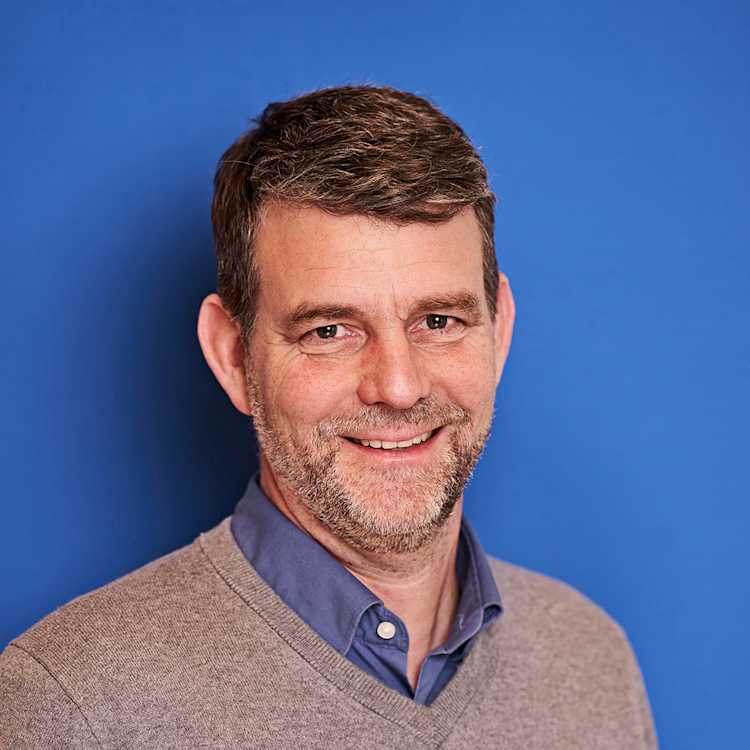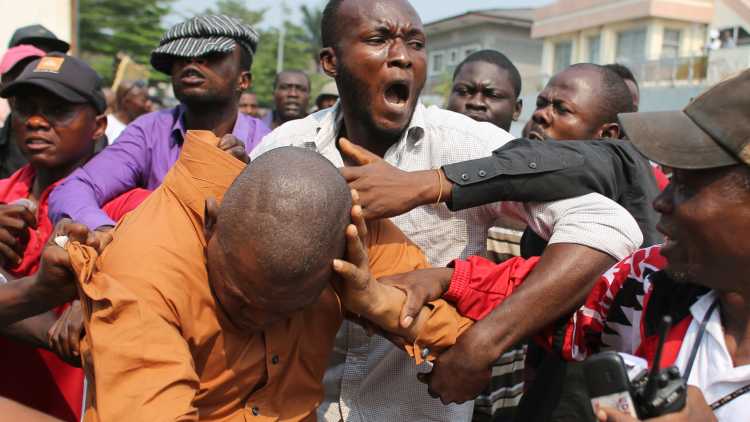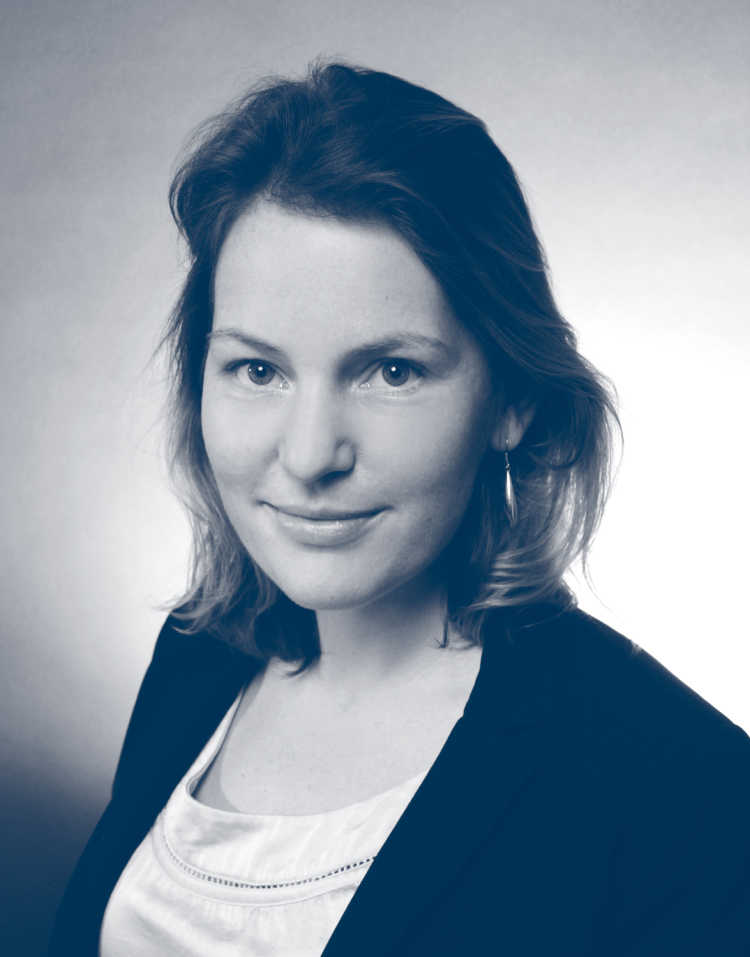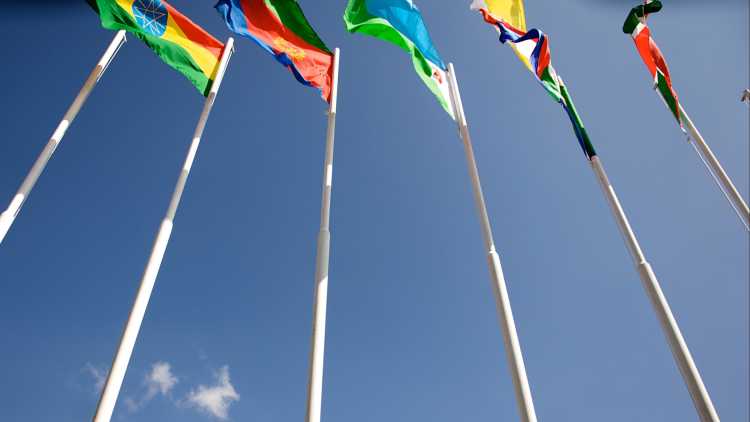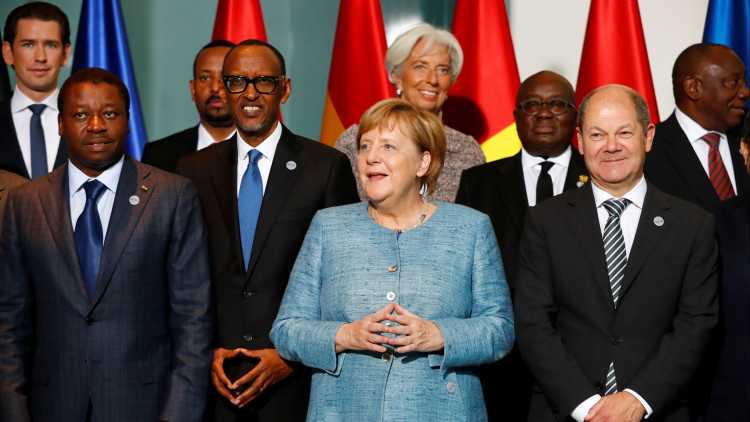- Startseite
- Publikationen
- GIGA Focus
- Ten Things to Watch in Africa in 2019
GIGA Focus Afrika
Zehn entscheidende Entwicklungen in Afrika im Jahr 2019
Nummer 1 | 2019 | ISSN: 1862-3603

Während die sozioökonomische Entwicklung Afrikas langsam voranschreitet und demokratische Prozesse sich in einigen afrikanischen Ländern vertiefen, bleiben in der Region insgesamt zahlreiche Herausforderungen bestehen. Die internationalen Beziehungen auf dem Kontinent sowie mit Europa und anderen Weltregionen zeigen ebenfalls ein gemischtes Bild. Wir präsentieren eine Auswahl von zehn Entwicklungen in Afrika, die im Jahr 2019 eine wichtige Rolle spielen werden.
Demokratie: Wichtige Wahlen stehen in einigen Ländern wie z.B. Nigeria (Februar) und Südafrika (April) an. In einigen Fällen wird die Demokratisierung Fortschritte machen, aber der Wunsch der Afrikaner nach mehr Demokratie wird durch immer stärker eingeschränkte Freiheiten für die Zivilgesellschaft und durch andere Repressalien autoritärer Herrscher in einigen Ländern nicht erfüllt werden.
Frieden und Sicherheit: Besondere Herausforderungen für Frieden und Sicherheit stehen im Zusammenhang mit Machtkämpfen von Eliten, Konflikten zwischen Identitätsgruppen und Dschihadismus. Die Auswirkungen der Wahl in der Demokratischen Republik Kongo bergen Risiken. Identitäts- und Elitenkonflikte mischen sich in Kamerun und im Südsudan. Im letzteren Fall ist der langfristige Erfolg für den jüngsten Friedensvertrag ungewiss. Nigeria und andere „Hotspots“ von Dschihadismus im Sahel und am Horn von Afrika erfordern multilaterale Reaktionen. Deren Erfolg wird von Reformen der Afrikanischen Union und subregionalen Organisationen sowie effektiveren Friedensmissionen abhängen.
Sozioökonomische Entwicklung: Pläne für eine afrikanische Freihandelszone könnten Fahrt aufnehmen; eine stärkere Stimme Afrikas im Post-Cotonou-Prozess wäre ebenfalls hilfreich für Afrika. Afrikanischen Volkswirtschaften droht allerdings eine neue Verschuldungskrise, insbesondere den Ländern, die Kredite von China aufgenommen haben.
Fazit
Die vorliegende Analyse einer Reihe entscheidender Entwicklungen für das Jahr 2019 rechtfertigt verhalten optimistische, aber dennoch gemischte Aussichten für die Region. Afrikanische und externe Akteure wie die Europäische Union und Deutschland sollten deshalb freie und faire Wahlen sicherstellen. Wo reformorientierte Akteure identifiziert werden können, sollten diese beherzt unterstützt werden. In Fällen wie Kamerun scheint präventive Diplomatie notwendig. Die Reform der Afrikanischen Union und anderer regionaler Organisationen, sowie entsprechender friedenserhaltender oder -schaffender Operationen, verdienen ebenfalls Unterstützung. Freihandelszonen und ausgewogenere Handelsbeziehungen mit Afrika sind eine wichtige Ergänzung von Geberinitiativen. Deutschlands Mitgliedschaft im Sicherheitsrat der Vereinten Nationen wird auch für Afrika von Bedeutung sein, allerdings mit begrenzten Auswirkungen.
This GIGA Focus deviates from the typical format of the Focus series. It is the joint product of several IAA staff. Julia Grauvogel and Charlotte Heyl authored the section on elections and democracy; Hannah Smidt wrote the segment on limitations to civic freedom; Malte Lierl penned the part on Togo; Nicole Hirt contributed on Ethiopia; Matthias Basedau wrote the segment on current conflicts; Christian von Soest and Julia Grauvogel contributed on the AU and on subregional organisations; Tabea Lakemann authored the parts on the free trade zone, the threats of a debt crisis, the post-Cotonou negotiations, and – together with Hannah Smidt – the role of Germany in the UNSC.
Election Watch and Democratisation 2019: The Good, the Bad, and the Ugly?
This year started with two electoral surprises in sub-Saharan Africa. First, former Madagascan president Marc Ravalomanana accepted his electoral defeat and congratulated his long-standing rival Andry Rajoelina, who had himself ousted Ravalomanana from power in 2009. Ravalomanana refrained from repeating history and did not ignite an election crisis, as he had done in 2002 when he challenged the election result and proclaimed himself president. A few hours later, the electoral commission of the Democratic Republic of the Congo (DRC) caused utter astonishment when it declared the opposition politician Felix Tshisekedi winner of the two-year overdue presidential elections. However, rumours spread that a secret power-sharing deal between outgoing president Joseph Kabila and Thisekedi had been struck. As such, election results may have been manipulated by the incumbent to ensure the victory of the “suitable” opposition candidate. Runner up, and possible actual winner, Martin Fayulu contested the results, filing a suit with the constitutional court; this failed, and Thisekedi was officially declared winner. The African Union (AU) intervened diplomatically in mid-January to avoid the crisis over the election result lapsing into violence.
The events in Madagascar and the DRC are only the prelude to a busy election year ahead. In 16 countries south of the Sahara, presidential or legislative elections are due in 2019. More elections are scheduled in countries that are classified as democracies by Freedom House and other democracy indices (e.g. Varieties of Democracy and the Bertelsmann Transformation Index) than in fully authoritarian regimes. In four out of nine African democracies, national elections are planned for this year: Botswana, Namibia, Senegal, and South Africa. While in Namibia little doubt exists that SWAPO will secure another victory, Botswana’s and South Africa’s own dominant political parties have come under more serious pressure. South Africa finds itself in a particularly delicate situation, as the ruling ANC has lost ground to both leftist populists demanding “white land” and to the liberal Democratic Alliance. The ANC might increase its populist rhetoric, with possibly harmful socio-economic consequences. In Senegal, the level of electoral competition was contained when the Constitutional Council rejected the candidacies of the two potentially strongest opposition candidates, Khalifa Sall and Karim Wade.
Three authoritarian regimes promise either legislative elections, as in Cameroon and Chad, or presidential ones, as in Mauritania. It is, however, uncertain whether the elections in Chad will indeed take place, having been repeatedly postponed since 2015. The bulk of this year’s elections will happen in countries in the grey zone between democracy and authoritarianism, such as Malawi, Mozambique, and Nigeria – the latter a crucial case. Four years after the widely celebrated first turnover at the ballot box in the country’s history, the elections’ outcome remains open with many risks attached – especially in light of multiple conflicts in Nigeria.
Popular support for elections has recently declined according to Afrobarometer, a pan-African research network that has conducted public attitude surveys in more than 35 countries over seven rounds since 1999. Some 73 per cent of respondents think that political leaders should be chosen in regular, open, and honest elections in 2018, down from 81 per cent in 2015. This is, in fact, the lowest figure since the start of the continent-wide survey, presumably because citizens have become disillusioned with electoral manipulation – a (still) common feature in many electoral autocracies. At the same time, one should not forget that more than two-thirds of the people surveyed still prefer democracy. The gap between people’s democratic aspirations and the more sober reality can be a driver for further democratic gains in 2019 and the years to come, if Africans pressure leaders into listening to their demands. Yet this divide might also become problematic in the near future, if disillusioned citizens turn away from governments that consistently fail to deliver.
Civil Society under Continued Pressure
A growing number of governments in sub-Saharan Africa crack down on civil society organisations – mirroring the current global trend of such restrictions being imposed. In so doing, African governments curtail the ability of civil society groups to monitor government behaviour, provide independent information on government wrongdoing, or deliver key services to those in need. Yet, the trend towards closing civic space is not uniform across organisations and regions. Restrictions tend to target non-governmental organisations (NGOs), especially those with international connections, rather than local collectives such as women’s cooperatives or church-based groups. Moreover, while space for civil society organisations is not shrinking in many countries in Southern and West Africa, those in East Africa (e.g. in Burundi, Kenya, Rwanda, Sudan, and Uganda) find themselves coming under increasing pressure.
This trend is likely to continue in 2019, because – once imposed – restrictions remain sticky. When restrictive legislation is passed, it remains valid until a replacement is ratified or the old version nullified. While civil society organisations in Africa increasingly resort to creative ways to resist government-imposed restrictions, the survival of civil society in closing and closed spaces also requires international pressure and support. First, it is important for foreign government actors and international NGOs to recognise the subtle ways in which governments restrict the operations of civil society organisations. Second, more systematic research is needed to improve our predictive ability vis-à-vis restrictions. Such predictions could inform alternative planning, as severe and systematic government restrictions hamper civil society organisations from achieving programme goals. Third, civil society would benefit from more stable and guaranteed funding lines to diminish competition between state and civil society groups for foreign resources. Advice on how to attract funding from alternative sources may also help strengthen civil society’s capacity to resist restrictions. Capacity-building regarding alternative funding sources may help civil society organisations to continue operating even in times of financial constraint.
Ethiopia’s Abiy Ahmed on the Path to Further Reform and Peace
Following the election of Dr. Abiy Ahmed as Ethiopian prime minister in April 2018, the country went through a stunning series of political and (to a lesser extent) economic reforms. Abiy apologised for past mistakes by the ruling EPRDF coalition, especially with regard to human rights violations, released thousands of political prisoners, legalised opposition parties that had formerly been labelled as “terrorist organisations,” put an end to Internet censorship, and called exiled opposition leaders back home to work together for the future of Ethiopia. He took measures against land grabbing and also appointed 50 per cent women to the new cabinet, including the minister of defence. He engaged in dialogue with opposition parties and promised free and fair elections for the year 2020. He went as far as pardoning all leaders of armed guerrilla groups, and invited them to return.
In another surprising move, he broke the stalemate between Ethiopia and Eritrea by accepting an international border verdict dating back to 2002 and reached out to Eritrean president Isaias Afewerki, inviting him to Addis Ababa. There, he turned the usually stern-looking dictator into a blissfully happy man who pledged to accept the Ethiopian PM as “our leader” (Zere 2018). In September, both countries signed a peace agreement, and Abiy worked on improving the relations between Djibouti and Asmara and facilitating a rapprochement between Somalia and Eritrea.
The year 2019 will show whether Abiy can continue with his reforms, and whether he can improve security across the country. The prime minister survived an assassination attempt in June 2018, and managed to appease a mutiny by hundreds of soldiers who entered the grounds of his office in September. Security has been tightened in recent months, but there is still a risk that opponents of his reforms among the Tigrayan elites or militant Oromo groups might make further attempts on his life. The major challenge that Abiy faces is the ongoing ethnic violence in different parts of the country, which has internally displaced up to three million people. It also seems that the Oromo Liberation Front is not willing to participate in a peaceful democratic process, planning instead to continue its armed struggle. Besides containing ethnic violence, liberalisation of the economy despite the establishment’s resistance to that will be Abiy’s other significant challenge in the year ahead.
Togo: A Moment of Truth
For a number of years now citizens of Togo, Africa’s most enduring autocracy, have been protesting the corrupt reign of Faure Gnassingbé, whose father took power in 1967. For ECOWAS, the community of West African states that has increasingly come to be seen as a “club of democracies,” the Togo crisis could, in 2019, become a moment of truth. Since 2018, the AU and the international community have recognised ECOWAS as being chiefly responsible for political mediation between the government and opposition in Togo (also see our part on the division of labour between the AU and regional communities below). Unlike in Gambia in 2017, however, when ECOWAS took sides with the people and used military force to oust the dictator and defeated election candidate Yayha Jammeh, the regional organisation’s credibility has suffered during the ongoing Togo crisis. In 2005, ECOWAS remained complacent when Togolese security forces killed hundreds of citizens protesting the presidential elections, through which Faure Gnassingbé sought to legitimise the dynastic transfer of power from his deceased father. The political crisis escalated again in 2017, when the ruling party tried to facilitate two additional presidential terms for Gnassingbé via a constitutional referendum. Since then, the protest movement has mobilised hundreds of thousands of citizens – that in a country of barely eight million inhabitants. Fourteen opposition parties formed the “C14” alliance, and sought to negotiate a solution with the government. Under Gnassingbé’s own chairmanship in July 2018, ECOWAS developed a road map towards a political settlement of the crisis – which included a formal commitment to presidential term limits, a revision of the voter registry, and abstinence from political repression (ECOWAS 2018). However, the ECOWAS road map mostly just bought the ruling party additional time. Since then, the regime has reacted with renewed repression and violence against the mounting public protests. The parliamentary elections in December 2018 were non-transparent and boycotted by the opposition parties. Ahead of the 2020 presidential elections, it will become apparent whether street protests can force regime change, the regime will once more be able to cling onto power through coercion and repression, or whether the crisis can still be resolved through political mediation.
Hotspots of Conflict: Power Struggles, Identity Group Dynamics, and Jihadism
Risks to peace in 2019 mainly connect to elite power struggles, public protests, tensions between identity groups, and to jihadism. As discussed above, the aftermath of the surprising result of the DRC elections may ultimately change things for the better or for the worse. There is reason to be cautiously optimistic for now, as protests have not escalated of late. Identity and elite conflicts mix in Cameroon and South Sudan (ICG 2019); in the latter case, prospects for the most recent peace deal – signed in September 2018 – are uncertain. Riek Machiar and Salva Kiir have signed several agreements before, but their personal rivalries rather than ethnic antagonisms have been at the root of that country’s civil war. In Cameroon, the uprisings in the anglophone parts of the country need to be watched closely. An additional and potentially catalytic threat stems from the question of succession to the incumbent president Paul Biya. Being in his mid-eighties, and without an apparent heir, regional and international actors should start to work on the crisis now rather than wait for its escalation. More urgently, Nigeria – where elections and communal conflicts add additional risks – and other hotspots of jihadism in the whole of the Sahel and the Horn of Africa will require continued action as well. Jihadism has become the single-most visible feature of armed conflicts in Africa for a number of years now. The recent attack in Nairobi is a reminder of the continued potential for spillover. Countries must engage in robust action against jihadists, but initiate programmes to win the hearts and minds of potential ones too. Radical ideologies become relatively attractive where governments fail to deliver on security, legitimacy, and welfare. International influences from North Africa and the Middle East, especially the Gulf States, should be closely watched and negated, if necessary. Peace and security will not be brought to Africa primarily from outside, though. Support for Africa is useful and necessary, but only African solutions will be sustainable in the long run.
Implementation Is Key for AU Reform to Be Successful
At a number of summits, African heads of government intensely debated in 2018 how to reform the AU – an issue that will be top of the agenda this year as well. Led by the outgoing AU chairperson, Rwanda’s President Paul Kagame, the main thrust has been to strengthen the AU’s funding and effectiveness. With regard to substantive issue areas, two reform decisions stand out regarding the AU’s role in resolving armed conflicts and building peace on the continent. First, the heads of government decided to reduce the number of AU departments from eight to six, to streamline the AU Commission’s work. This most notably includes the merging of the Departments of Peace and Security and of Political Affairs. The proponents of this reform argue that a more holistic approach will reduce overlap between the departments, and will allow the AU to more comprehensively tackle the structural causes of conflict issues (ISS 2018a). Second, at the end of the year, the AU Commission reported that the AU Peace Fund – the organisation’s key funding mechanism for peace and security initiatives on the continent – is now filled to the tune of USD 60 million. This represents an important step towards increasing own African funding for mediation, conflict prevention, and peacebuilding on the continent. Furthermore, the extraordinary summit decided to step up the AU sanctions regime for the non-payment of membership contributions. For instance, AU membership will now be suspended for those countries that have defaulted by two years instead of the previous five (African Union 2018; ISS 2018a). Yet the AU Constitutive Act (Article 23) already provides the right to “deny member states the right to speak in meetings, to vote, to present candidates for any positions or post within the Union or to benefit from any activity or commitments.” The problem has always been that these provisions are hardly ever put into practice.
Going by past experience, it is most likely that in 2019 AU reforms will move forward only slowly. Reform proposals to strengthen the AU Commission’s effectiveness are on the table, while others – for instance on the Pan-African Parliament – are still pending. The key issue, however, will be to put the decisions on AU reform into practice. Most African governments’ obsession with strong sovereignty norms – as on other continents worldwide too – puts an inherent burden on giving the AU Commission more weight. In addition, the AU will lose its reform champion at the top of the organisation in February: Rwanda’s President Kagame will hand over the AU chairmanship to Abdel Fattah el-Sisi, the Egyptian president. In 2019, AU member states will probably only agree on the lowest common denominator when it comes to strengthening regional integration – at least in terms of political concessions. Some regional economic communities like ECOWAS will move forward faster in order to deepen integration, and will take more decisive actions in the realm of peace and security.
In the context of the AU reform process, the relationship between that organisation and Regional Economic Communities (RECs) will play an increasingly important role in 2019. Past experience has shown that a clear division of labour is crucial here, so that peace and security issues can be tackled more coherently. In the case of the conflict in Burundi, which was sparked by President Pierre Nkurunziza’s controversial third term bid in 2015, continental rather than regional engagement was pronounced at first. The AU took the unprecedented step of authorising the deployment of 5,000 peacekeepers in December 2015. However, the threatened intervention never occurred due to a strong Burundian pushback and concerns by several African heads of states about setting an unwanted precedent for future interventions (Wilén and Williams 2018). Disillusioned by this failure, the AU ceded responsibility for dealing with Burundi’s ensuing conflict to the East African Community (EAC) – in line with its principle of subsidiarity. Yet this shift of primary responsibility has been far from smooth, among other reasons because the division of labour remains unclear to some extent and because the AU continues to comment on how the EAC deals with the situation in Burundi – even though the subregion is now supposed to be in the driving seat. If this year should indeed see a first step being taken towards addressing these long-standing frictions, coordination meetings between the AU and RECs – which are supposed to take place annually from 2019 onwards – not only have to materialise but should be complemented by regular (informal) exchange at the working level too. More systematic cooperation between the AU and RECs is crucial to developing a common stance on conflicts such as that in Burundi.
Germany’s Seat in the UN Security Council and the Need to Reform UN Peacekeeping
Germany began its two-year membership of the United Nations Security Council (UNSC) in January 2019. While it does not have veto power as a non-permanent member, Germany’s influence should not be underestimated – also for dealing with Africa-related issues. Germany is now the fourth-largest contributor to the UN budget and the second-largest provider of humanitarian aid and official development assistance. Also, Germany maintains good relations with most UN members, winning its bid for UNSC membership with the strongest polling of all contenders (184 out of 193 possible votes, where all candidates ran unopposed in their respective regional categories).
Second, Germany has long been an advocate for reform of the UNSC – with Foreign Minister Heiko Maas stating in September 2018 that: “We should stop beating around the bush and finally start real negotiations on Security Council reform.” “Real” negotiations may also bring opportunities for African countries to boost their own representation too. The question then is whether the reform promoted by Germany and its allies also advances African countries’ interests. The G4 – Brazil, Germany, India, and Japan – advocate for six new permanent and four new non-permanent seats, which would give African states two permanent and four non-permanent seats in a Security Council consisting of 25 members. The Common African Position on Security Council Reform calls for a total of two permanent and five non-permanent seats for African states in a council of 26 members. Another contested issue concerns veto rights: the G4 proposal envisages no veto powers for new permanent members, while the African position is opposed to the veto in general but still insists that all permanent members have a right to veto decisions as long as this power still exists.
Third, Germany’s topical priorities for its stint in the UNSC are relevant for African countries. Strengthening peace, justice, innovation, and partnerships have been announced as key goals of Germany’s tenure. The German ambassador to the UN, Christoph Heusgen, outlined that Germany will actively put new issues on the agenda during its presidency of the UNSC in April 2019 and mid-2020. A first focus will be on women, peace, and security, more specifically on strengthening women’s representation in mediation processes and conflict prevention – and on combating sexual violence in conflict contexts such as South Sudan or the DRC. Moreover, climate and security will be a strong focus of Germany’s work, with the Lake Chad basin being a key example of a region where climate change, migratory pressures, conflict, and humanitarian crises all closely interact.
As one of the largest Western troop contributors to UN peacekeeping operations, Germany is directly affected by the fact that their personnel losses are higher in war-torn countries in Africa than in any other world region. This trend will likely continue in 2019, and brings with it the need to address a number of strategic questions regarding the design of future UN peacekeeping operations on the continent – an important task for the UNSC. The UN currently concentrates its peacekeeping resources on conflicts in Africa indeed. Nearly 80,000 uniformed peacekeepers are deployed in six African countries: Central African Republic, DRC, Mali, South Sudan, Sudan (Darfur and Abyei), and Western Sahara.
Yet, greater peacekeeping efforts in absolute terms are not the only explanation for higher casualty numbers in Africa. Deaths of peacekeepers relative to the numbers deployed in a country are also higher in Africa than in any other world region. What makes peacekeeping in Africa more dangerous is the specific nature of the operating environment and mandate of the blue helmets. Apart from Western Sahara, all peacekeeping operations in Africa are deployed in ongoing wars and tasked with robust and pre-emptive operations. Mali is an exemplary case of robust peacekeeping. UN peacekeepers there coordinate with French and West African troops to fight Islamist insurgent groups, and thus explicitly side with the government. As such, robust operations blur the distinction between peacekeeping and combat.
In this year’s lead-up to the overhaul of the UN peace and security architecture by 2020, fatalities and failures vis-à-vis peacekeeping in Africa should prompt strategic thinking about the future of these multilateral operations more generally. Currently, policy debates feature two avenues for change. First, UN peacekeeping operations morph into effective counter-insurgency operations. This transition would require more personnel and equipment (for example, attack helicopters), greater operational intelligence, and the increased preparedness of individual soldiers for combat – endeavours of unlikely success, given the recent UN budget cuts and US scepticism about multilateral solutions. Second, and alternatively, UN peacekeeping operations leave combat to state armies and regional organisations. As UNSC member in 2019 and significant contributor to the UN peacekeeping operation in Mali, Germany should hence keep in mind the proven track record of non-coercive strength of these operations.
Grand Strides for Africa’s Economic Integration
An impressive 44 African countries signed the African Continental Free Trade Area (AfCFTA) at the AU summit in Kigali in March 2018; five more followed suit later. Knowing the difficulties of regional integration in Africa, the big questions for 2019 are if, when, and how the AfCFTA will become a reality. With news of additional ratifications coming in by the hour and the current total standing at 18, the quorum of 22 official ratifications is within reach; the AfCFTA becoming official is a very realistic possibility in 2019. The next AU summit, in Addis Ababa in early 2019, will reveal whether the momentum can be maintained under the presidency of Egypt, one of the few countries that has not yet ratified the AfCFTA.
The goal is ambitious: the AfCFTA is ultimately supposed to remove tariffs on 90 per cent of goods over approximately the next 10 years, tackle non-trade barriers, and liberalise trade in services. With intra-African trade in goods currently being at lower levels than trade within any other region of the world, there is a lot of room for improvement. The Economic Commission for Africa optimistically estimates that the AfCFTA would increase the value of intra-African trade in goods by 25 to 50 per cent over the next 20 years (Economic Commission for Africa and African Trade Policy Centre 2018). These increases would apply to both agricultural products and manufactured goods. Intra-African exports contain a higher share of manufactured goods than exports to non-African trade partners, thus suggesting that the level of export sophistication could rise under the AfCFTA. It faces significant hurdles to implementation however, the first being ambivalent support due to fears of revenue losses and industrial competition. The North African countries and large parts of Central Africa have signed but not ratified the AfCFTA. Botswana, Zambia, and Tanzania, crucial parts of the trade corridor between South Africa and the East African countries, have still not signed the AfCFTA. Nigeria, Africa’s largest economy, faces considerable domestic resistance and has also not signed. The success of the AfCFTA hinges on gaining broader support in 2019. If successful, the AfCFTA could be a catalyst for stronger cooperation within the AU too – thus potentially enhancing continental integration in other areas such as peace and security.
A Stronger African Voice Emerges in the Post-Cotonou Negotiations
The Cotonou Agreement, which has governed European Union (EU) relations regarding trade, development cooperation, and the “political dimension” with African, Caribbean, and Pacific (ACP) states since the year 2000, is set to finally expire in 2020. Official negotiations for a successor agreement commenced in September 2018. One year ago we argued that 2018 would set the tone for the post-Cotonou negotiations, and that they would be off to a bumpy start if a stronger African position did not emerge. This it did, however. Not only, as noted, did 44 AU member states sign up for the AfCFTA, but the AU Executive Council also unanimously decided to adopt the African Common Position for Negotiations. This calls for an EU–AU agreement that is separate from the ACP context, thus offering a legal basis for including also North African states – which are not part of the ACP grouping. At his State of the Union address in September 2018, European Commission President Jean Claude Juncker similarly outlined the vision of an “EU–Africa” partnership with the long-term goal of establishing a continent-to-continent free trade agreement.
How exactly this common position will be reflected in the negotiations – including the choice of negotiating partners, and also to what extent that joint stance can indeed strengthen the African side – remains to be seen in 2019. The critical question is whether the ACP secretariat or the AU negotiate on behalf of Africa (Fox 2018). The EU position is to negotiate three regional agreements with Africa, the Caribbean, and Pacific countries in the ACP context. After initial disagreements on the African side (ISS 2018b), the AU now favours a “two-track” process – with post-Cotonou negotiations in the ACP forum under the leadership of Togo’s Foreign Minister Dussey, and parallel continent-to-continent negotiations under the auspices of the AU. Topics concerning all ACP states, such as aid and its delivery, could then be left to the post-Cotonou negotiations, while other more partnership-oriented and Africa-specific topics – such as trade and migration – could be part of continent-to-continent ones. If the AU manages to strengthen its negotiating position, the year ahead may constitute a crossroads for Africa–EU relations.
Further Watch Africa’s Looming Debt Crises
Quickly rising sovereign debt levels are becoming more problematic across the entire continent. As of January 2019, 17 low- and lower middle-income countries in Africa are either facing a high risk of debt distress or are already in the midst of it according to recent International Monetary Fund (IMF)/World Bank joint debt sustainability assessments. Given that only eight countries fell into this category in 2013 and 2014, and that low debt levels at the time partly owed to the success of multilateral debt relief initiatives, this is an alarming development.
Public debt has not only risen but also its composition changed, in three key ways: First, there has been a surge in bond finance over the past decade, with especially lower middle-income countries such as Ghana, Côte d’Ivoire, or Kenya increasingly turning to international markets. Second, there has been a rise in bilateral borrowing from countries outside the Paris Club (a group of creditor countries that are mostly Organisation for Economic Co-operation and Development, OECD, members) – most prominently, China. This category of borrowing accounted for almost one-third of the public and publicly guaranteed debt of countries in sub-Saharan Africa in 2016. Third, the share of concessional debt – meaning that including special conditions for developing countries – has declined.
Taken together, these developments leave African governments more exposed to market conditions than before when it comes to government financing. Having benefitted from low interest rates and enthusiasm for emerging markets when issuing their bonds, governments might have to pay higher premia once they start maturing and need to be refinanced, in the 2020s. Loans from China are still a welcome alternative to Western conditionality for many, but come with their own caveats and put African debtors at the mercy of one single creditor. African countries are becoming increasingly weary of these downsides.
This will be a decisive year for debtors and creditors alike, with new modes of debt management yet to emerge. African countries that are about to take on more debt may hopefully negotiate conditions well, and protect their assets. Angola, which had borrowed heavily from China and got into arrears following the global oil price deterioration and ensuing economic crisis, already secured IMF technical and financial assistance in late 2018. Ethiopia managed to negotiate debt restructuring with China in 2018, but was nevertheless recently moved into the “high-risk” category. The year ahead will also be a test for the Paris Club, where OECD members and multilateral institutions were previously able to negotiate debt haircuts among themselves.
Fußnoten
Literatur
African Union (2018), 11th Extraordinary Summit: Summary of Key Decisions, 18 November, https://au.int/en/pressreleases/20181118/11th-extraordinary-summit-summary-key-decisions (7 February 2019).
Economic Commission for Africa, and African Trade Policy Centre (2018), An Empirical Assessment of the African Continental Free Trade Area Modalities on Goods, www.uneca.org/sites/default/files/PublicationFiles/brief_assessment_of_afcfta_modalities_eng_nov18.pdf (7 February 2019).
ECOWAS (2018), Fifty-Third Ordinary Session of the ECOWAS Authority of Heads of State and Government, 31 July, Lomé, Togolese Republic, www.ecowas.int/wp-content/uploads/2018/08/Final-Communique-English.pdf (7 February 2019).
Fox, Benjamin (2018), Who Will Speak for Africa with Brussels?, Euractiv.com (blog), 21 December, www.euractiv.com/section/africa/news/who-will-speak-for-africa-with-brussels/ (7 February 2019).
ICG (International Crisis Group) (2019), 10 Conflicts to Watch in 2019, www.crisisgroup.org/global/10-conflicts-watch-2019 (19 January 2019).
ISS (2018a), Peace & Security Council Report No. 109, https://issafrica.s3.amazonaws.com/site/uploads/psc-109-1.pdf (7 February 2019).
ISS (2018b), Africa’s Trade Contradictions Could Cost the Continent, Institute for Security Studies Africa, 17 October, https://issafrica.org/iss-today/africas-Trade-contradictions-could-cost-the-continent (7 February 2019).
Wilén, Nina, and Paul D. Williams (2018), The African Union and Coercive Diplomacy: The Case of Burundi, in: The Journal of Modern African Studies, 56, 4, 673–696.
Zere, Abraham T. (2018), Isaias out of Character. Why Eritreans are Getting Nervous, 18 July, https://africanarguments.org/2018/07/18/why-eritrea-nervous-isaias-abiy-ethiopia/ (11 January 2019).
Gesamtredaktion GIGA Focus
Redaktion GIGA Focus Afrika
Lektorat GIGA Focus Afrika
Regionalinstitute
Forschungsschwerpunkte
Wie man diesen Artikel zitiert
Lakemann, Tabea, und Christian von Soest (2019), Zehn entscheidende Entwicklungen in Afrika im Jahr 2019, GIGA Focus Afrika, 1, Hamburg: German Institute for Global and Area Studies (GIGA), http://nbn-resolving.de/urn:nbn:de:0168-ssoar-61370-8
Impressum
Der GIGA Focus ist eine Open-Access-Publikation. Sie kann kostenfrei im Internet gelesen und heruntergeladen werden unter www.giga-hamburg.de/de/publikationen/giga-focus und darf gemäß den Bedingungen der Creative-Commons-Lizenz Attribution-No Derivative Works 3.0 frei vervielfältigt, verbreitet und öffentlich zugänglich gemacht werden. Dies umfasst insbesondere: korrekte Angabe der Erstveröffentlichung als GIGA Focus, keine Bearbeitung oder Kürzung.
Das German Institute for Global and Area Studies (GIGA) – Leibniz-Institut für Globale und Regionale Studien in Hamburg gibt Focus-Reihen zu Afrika, Asien, Lateinamerika, Nahost und zu globalen Fragen heraus. Der GIGA Focus wird vom GIGA redaktionell gestaltet. Die vertretenen Auffassungen stellen die der Autorinnen und Autoren und nicht unbedingt die des Instituts dar. Die Verfassenden sind für den Inhalt ihrer Beiträge verantwortlich. Irrtümer und Auslassungen bleiben vorbehalten. Das GIGA und die Autorinnen und Autoren haften nicht für Richtigkeit und Vollständigkeit oder für Konsequenzen, die sich aus der Nutzung der bereitgestellten Informationen ergeben.















